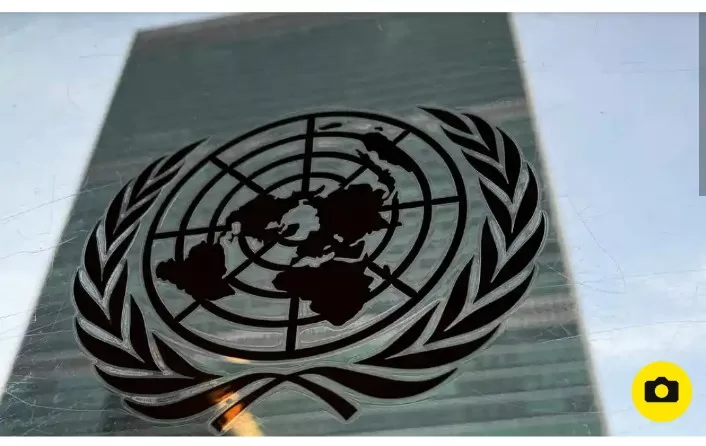Craig Mokhiber, the Director of the New York office for the UN High Commissioner for Human Rights, has stepped down from his position, expressing deep concern that the UN is falling short of its responsibility to prevent what he unequivocally describes as genocide against Palestinian civilians in Gaza, particularly under Israeli bombardment. Mokhiber also asserted that the United States, the United Kingdom, and a significant portion of Europe are “wholly complicit” in this distressing assault.
In a letter addressed to the UN High Commissioner in Geneva, Volker Turk, dated October 28, Mokhiber, who reached the retirement age, conveyed that this communication would mark his final interaction in his role based in New York. He lamented, “Once again, we are witnessing a genocide unfolding before our very eyes, while the organization we serve seems powerless to intervene.”
Mokhiber noted the UN’s past failures to prevent genocides targeting the Tutsi population in Rwanda, Muslims in Bosnia, the Yazidi community in Iraqi Kurdistan, and the Rohingya in Myanmar. He underscored, “High Commissioner, we are failing once more. The ongoing widespread extermination of the Palestinian people, stemming from an ethno-nationalist colonial settler ideology, following decades of systematic persecution and displacement solely based on their Arab identity, leaves no room for doubt.”
Furthermore, Mokhiber categorically labeled the current situation as a “textbook case of genocide” and accused the United States, the United Kingdom, and many European nations of not only failing to uphold their treaty obligations under the Geneva Conventions but also of providing military support to Israel’s offensive while diplomatically shielding it.
Notably, Mokhiber’s resignation letter did not reference the October 7th attack by Hamas on southern Israel, where over 1,400 individuals lost their lives, and 240 were taken hostage. Controversially, he also called for a transformational shift regarding the state of Israel.
“We must advocate for the establishment of a unified, democratic, secular state across all of historical Palestine, guaranteeing equal rights to Christians, Muslims, and Jews,” he articulated, concluding with a call for the dismantling of what he characterized as a deeply discriminatory settler-colonial project and an end to apartheid throughout the land.
Mokhiber’s tenure with the UN spanned back to 1992, during which he held various increasingly influential positions. He led the development of a human rights-centered approach to development on behalf of the high commissioner and served as a senior human rights adviser in regions like Palestine, Afghanistan, and Sudan.
Throughout his time as the Director of the New York office of the high commissioner for human rights, Mokhiber faced occasional criticism from pro-Israeli groups for his social media comments. He was particularly scrutinized for his endorsement of the boycott, divestment, and sanctions (BDS) movement, along with his accusations of Israel practicing apartheid—assertions he reiterated in his farewell letter.
Reaction to Mokhiber’s outspoken resignation from such a prominent UN role varied. Louis Charbonneau, the UN director at Human Rights Watch, acknowledged that he had presented a compelling argument against double standards in the UN’s stance, shaped partly by external pressures from governments such as the United States and Israel. Charbonneau asserted that it is not too late for the UN to rectify its course on human rights concerning Israel and Palestine.
Conversely, Anne Bayefsky, who directs Touro College’s Institute on Human Rights and the Holocaust in New York, alleged “overt antisemitism” on Mokhiber’s part via social media. She accused him of using UN letterhead to advocate for “eliminating Israel from the map.”
A spokesperson for the UN in New York confirmed Mokhiber’s retirement, emphasizing that his publicized views are his personal opinions. The statement reiterated the UN’s position on the grave situation in the Occupied Palestinian Territories and Israel, which is conveyed through official reports and public statements.”







